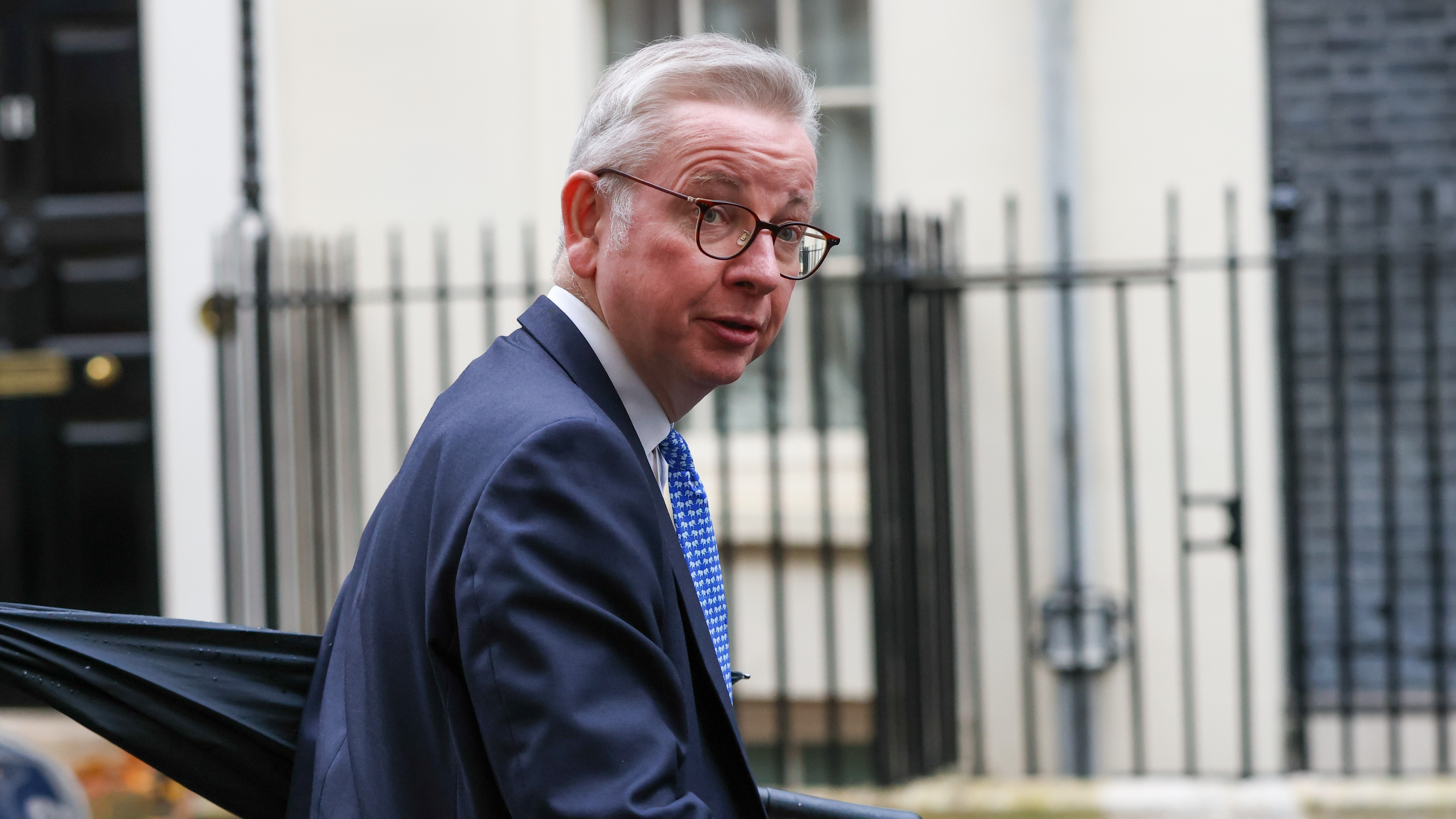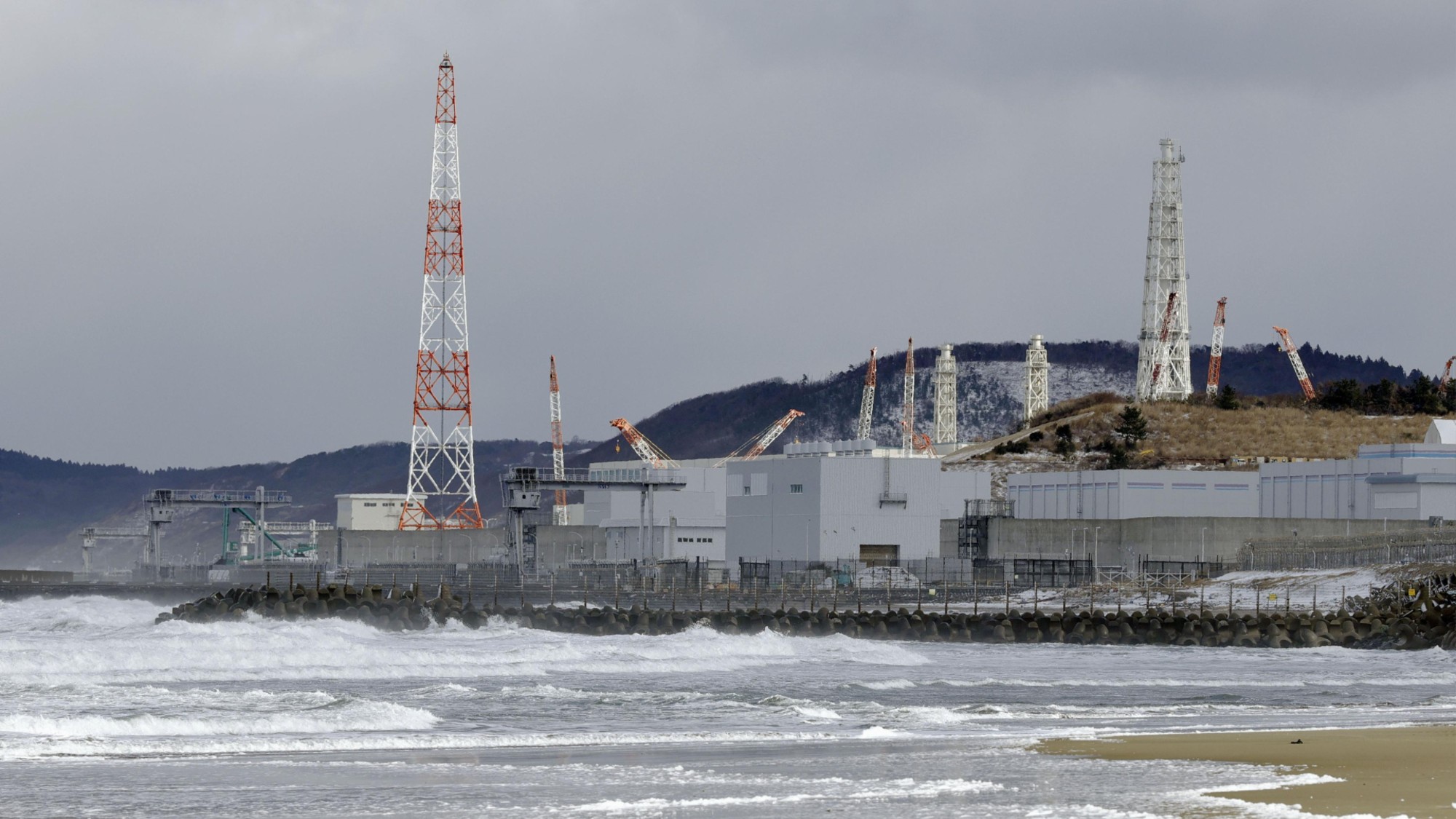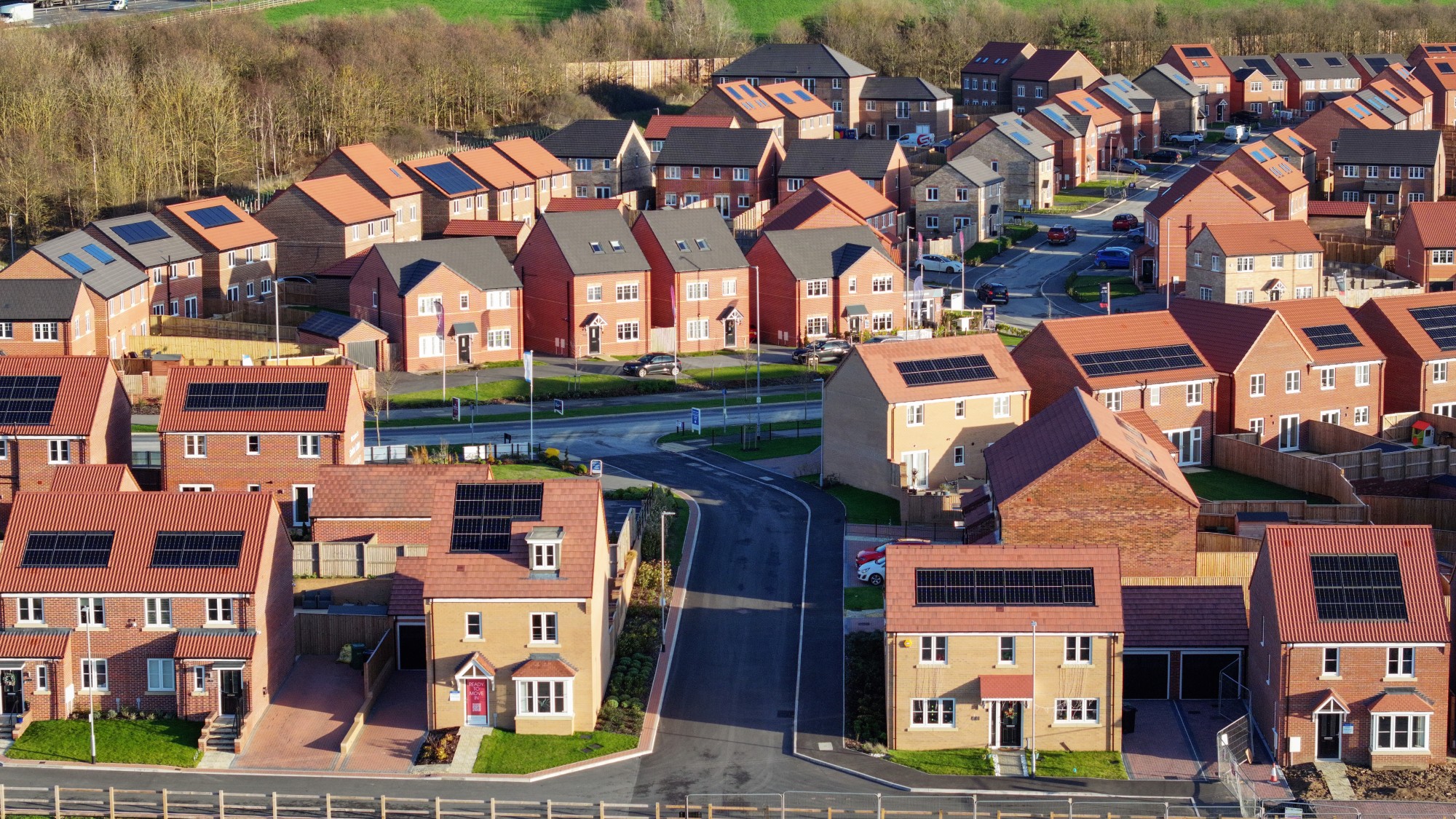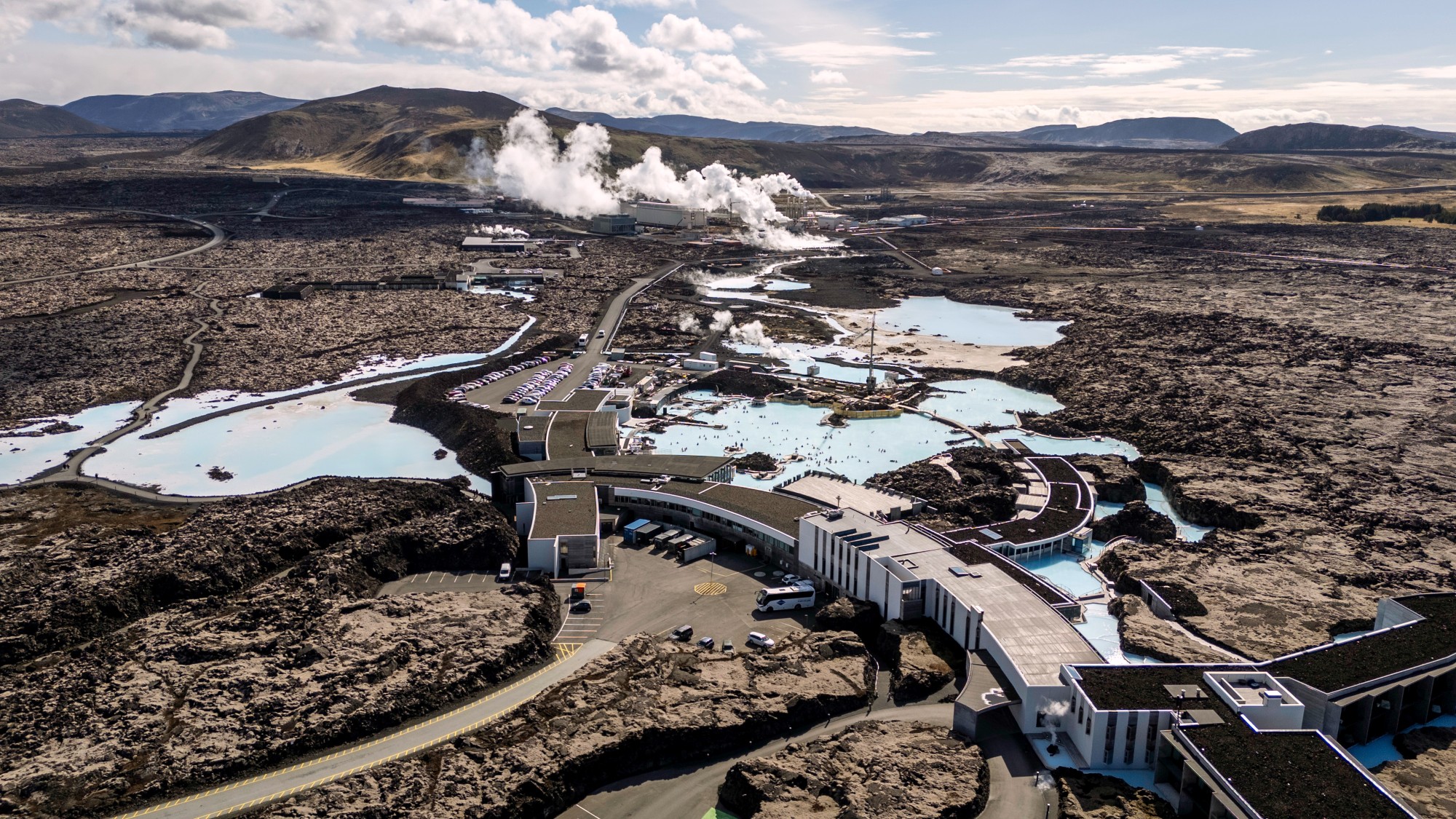Coal for Christmas: has the UK changed its energy policy?
Whitehaven mine approved by Michael Gove would produce an estimated 400,000 tonnes of greenhouse gas emissions a year

A free daily email with the biggest news stories of the day – and the best features from TheWeek.com
You are now subscribed
Your newsletter sign-up was successful
Levelling Up Secretary Michael Gove has approved the UK’s first deep coal mine in three decades, a move that opponents say will send the country’s green credentials “up in smoke”.
Gove “gave the green light” for a new mine to be created in Whitehaven, Cumbria this week. The £165m project will create “about 500 new jobs in the region and produce 2.8m tonnes of coking coal a year, largely for steelmaking”, said The Guardian.
But the mine will also produce “an estimated 400,000 tonnes of greenhouse gas emissions a year”, which is the equivalent of “putting 200,000 cars on the road”, said the paper.
The Week
Escape your echo chamber. Get the facts behind the news, plus analysis from multiple perspectives.

Sign up for The Week's Free Newsletters
From our morning news briefing to a weekly Good News Newsletter, get the best of The Week delivered directly to your inbox.
From our morning news briefing to a weekly Good News Newsletter, get the best of The Week delivered directly to your inbox.
The government has insisted that the mine falls within its own climate legislation, which requires the UK to reach net zero emissions by 2050, “as operations will shut down by 2049”. But ministers are now “braced” for “an almost certain” legal challenge to the plans by critics who say the decision risks breaching the target and flies in the face of the UK’s climate commitments.
What did the papers say?
The level of “churn” at the top of British politics this year, which has seen three different Conservative prime ministers, has “obscured how much the world has changed”, wrote James Forsyth in The Times. “Inflation, war, lockdown’s aftershock: these have upended our assumptions about everything from security to supply chains,” said Forsyth.
It has prompted an update of the UK’s integrated review – essentially the country’s national strategy – to “reflect these new dynamics”, and the government is likely to publish it in the spring. “But perhaps the more important long-term shift is decoupling: the drive to reduce dependence on China and build resilience into our supply chains”.
Britain is now “beginning to adjust to this new world”, says Forsyth. Indeed, the “official argument” for the need for a new coal mine “relies heavily” on the need for domestic steel production, which requires coking coal, and that it is “better to produce both here than rely on importing coal from countries such as Russia and steel from China”.
A free daily email with the biggest news stories of the day – and the best features from TheWeek.com
But it seems that the “new British coal won’t in fact be used for the production of British steel, or at least not much of it”, wrote Cat Rutter Pooley in the Financial Times. “The sulphur content is apparently too high for British Steel, while the expected lifespan of the blast furnaces at Tata Steel’s Port Talbot works limit its likely demand for coking coal to perhaps little more than a decade,” she wrote. “A security of supply argument just doesn’t stack up.”
A better approach would be for the government to “listen to what the industry wants and then work towards delivering it”, which is “not domestically sourced coal, it is subsidies to support decarbonisation”. The UK steel industry and the jobs it provides will “wither” without support, and a “new coal mine will be neither here nor there”. But in the meantime, “the UK’s climate credentials will have gone up in smoke”.
Any suggestion that the planned Whitehaven mine is “either needed or wanted” by the UK steel industry is “a gross deception”, wrote The Telegraph’s world economy editor Ambrose Evans-Pritchard. In July, UK Steel launched a net zero plan that argued the industry “stood to benefit from being a first-mover in decarbonisation” as it eyed some “35,000 jobs in green steel”.
“The approval of this mine is a tacit admission that the government’s attempts to level up the UK have failed,” wrote James Murray, editor of BusinessGreen. The government “had so many options available to drive regional development” but in the end “all it had to offer was the brief revival of an extractive, polluting, and declining industry. Less the white heat of technology and more the dark smog of nostalgia,” wrote Murray.
What next?
The plans have been heavily criticised across the political spectrum, including by former cabinet minister and Cop26 president Alok Sharma. Speaking to The Observer last week, he criticised the plans as a “backward step” for the UK. “A decision to open a new coalmine would send completely the wrong message and be an own goal. This proposed new mine will have no impact on reducing energy bills or ensuring our energy security,” he said.
The Observer called his intervention “evidence of the growing divisions in Conservative ranks over environmental policies”.
The approval of the mine comes shortly after ministers relaxed planning rules on Tuesday for onshore wind farms, said The Times. The move was “perceived in some quarters as an attempt to neuter claims that the support for coal undermined its climate change goals”, said the paper.
Meanwhile, climate change activists are gearing up for a legal fight, said the BBC. South Lakes Action on Climate Change said it is considering a legal challenge, and is “now launching a crowdfunding campaign to raise money to fight the plans”.
-
 Local elections 2026: where are they and who is expected to win?
Local elections 2026: where are they and who is expected to win?The Explainer Labour is braced for heavy losses and U-turn on postponing some council elections hasn’t helped the party’s prospects
-
 6 of the world’s most accessible destinations
6 of the world’s most accessible destinationsThe Week Recommends Experience all of Berlin, Singapore and Sydney
-
 How the FCC’s ‘equal time’ rule works
How the FCC’s ‘equal time’ rule worksIn the Spotlight The law is at the heart of the Colbert-CBS conflict
-
 Fifteen years after Fukushima, is Japan right to restart its reactors?
Fifteen years after Fukushima, is Japan right to restart its reactors?Today’s Big Question Balancing safety fears against energy needs
-
 Zero-bills homes: how you could pay nothing for your energy
Zero-bills homes: how you could pay nothing for your energyThe Explainer The scheme, introduced by Octopus Energy, uses ‘bill-busting’ and ‘cutting-edge’ technology to remove energy bills altogether
-
 Environment breakthroughs of 2025
Environment breakthroughs of 2025In Depth Progress was made this year on carbon dioxide tracking, food waste upcycling, sodium batteries, microplastic monitoring and green concrete
-
 Pros and cons of geothermal energy
Pros and cons of geothermal energyPros and Cons Renewable source is environmentally friendly but it is location-specific
-
 Can the world adapt to climate change?
Can the world adapt to climate change?Today's Big Question As the world gets hotter, COP30 leaders consider resilience efforts
-
 The Southern Ocean is holding in a ‘burp’
The Southern Ocean is holding in a ‘burp’Under the radar The heat from the past can affect the future
-
 Builders return to the stone age
Builders return to the stone ageUnder the Radar With brick building becoming ‘increasingly unsustainable’, could a reversion to stone be the future?
-
 Megabatteries are powering up clean energy
Megabatteries are powering up clean energyUnder the radar They can store and release excess energy